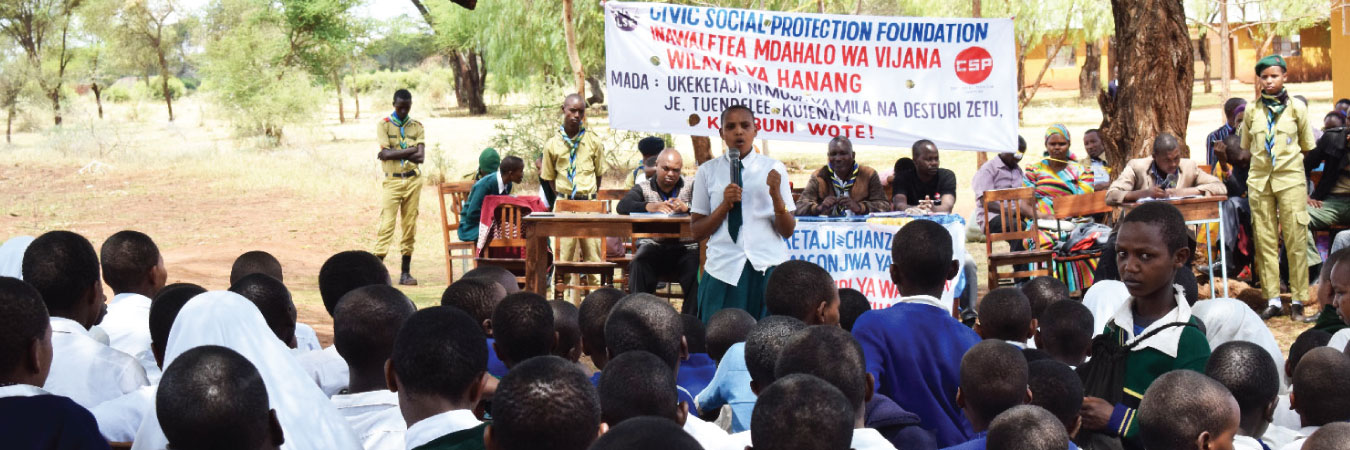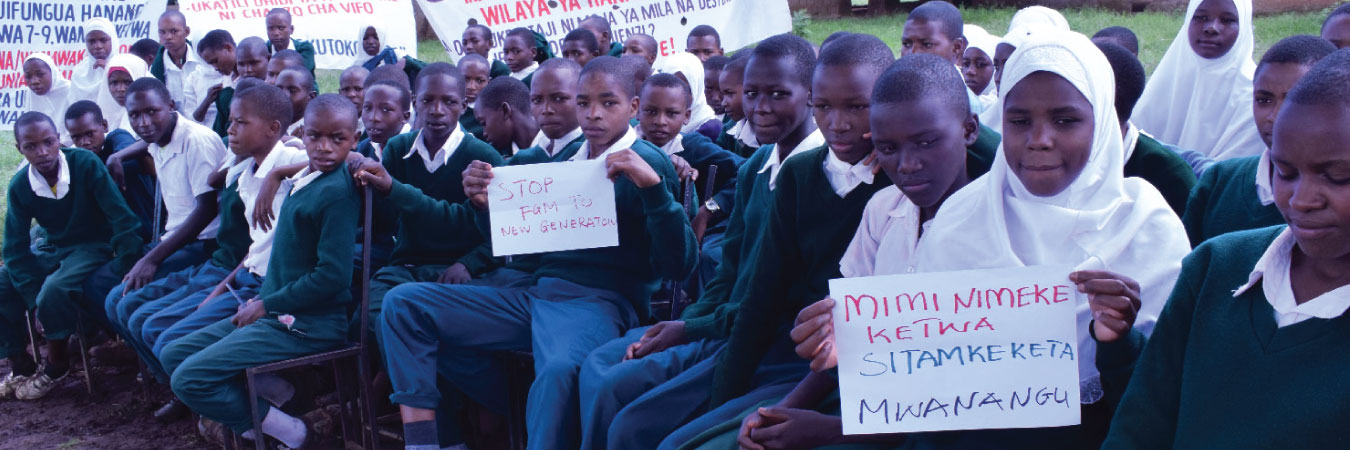Female Genital Mutilation/Cutting (FGM/C) was a cultural practice that had existed for generations and was carried out on girls between the ages of 0 to 15 years. The practice was linked to the belief that women’s sexual desire needed to be controlled, and it also served as a socio-cultural identity marker.
However, the practice violated basic human rights and was criminalized by several international, regional, and national laws, covenants, and protocols.
Manyara was one of the leading regions in FGM practice in Tanzania (58%) due to strong cultural beliefs and the traditional nature of its residents.

With support from the Legal Services Facility (LSF), CSP implemented an intervention aimed at changing people’s behavior, attitudes, and practices over time, especially in the most culturally rooted and affected areas of the region. The intervention targeted the young generation, including school-aged girls and boys (both primary and secondary), out-of-school youth, and middle-aged youth.
These groups were considered crucial because they were the ones whose mindset needed to shift—away from the belief that FGM/C was a rite of passage from childhood to adulthood and that girls who underwent FGM/C had a better chance of getting married.


+255 716 993 688
exd@csp.or.tz | info@csp.or.tz
Mrara street, Mruki road TTU Regional Building – Ground Floor P.O. Box 515 Babati – Tanzania
Sign up to receive updates about Civic Social Protection Foundation (CSP),
campaigns, and ways to get involved. It’s free to join.
Copyright © 2025 Civic Social Protection Foundation (CSP): All Rights Reserved